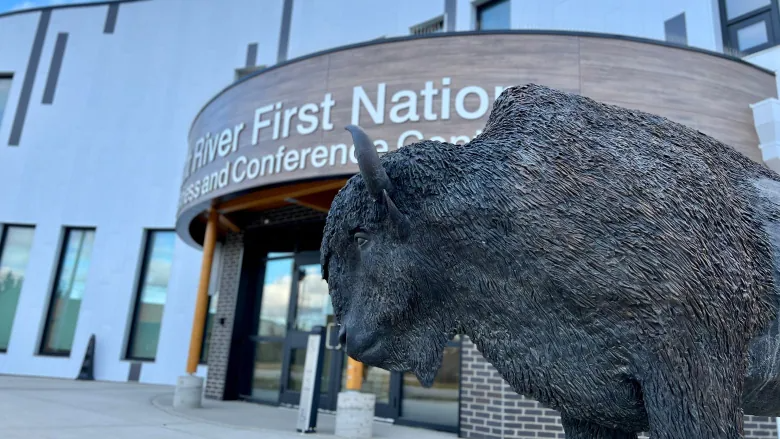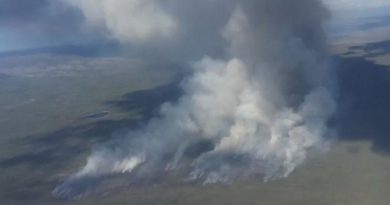Recent turmoil with chief and council is nothing new for Salt River First Nation

· CBC
The nation has a history of infighting going back decades
The Salt River First Nation (SRFN) of Fort Smith, N.W.T., has a long history of court battles and inner-upheaval, and the latest is its council’s attempt to remove newly elected chief Toni Heron.
Meanwhile, Heron is attempting to remove two councillors.
Heron was elected chief of the community on Sept. 19 and the six councillors; Don Beaulieu, Kendra Bourke, Freda Emile, Brad Laviolette, Levi MacDonald, and Warren Sikyea were all acclaimed.
On Oct. 13, Couns. Brad Laviolette and Kendra Bourke moved to suspend Heron for 60 days. According to court documents, they were backed up by two other councillors to reach a quorum.
This past Sunday evening, Heron convened a special meeting for members to remove Laviolette and Bourke.
Heron said she attended the meeting as a member of SRFN and not as chief. In that meeting, the membership voted to remove Laviolette and Bourke as councillors.
But the councillors say because Heron was suspended, that meeting wasn’t valid. This was according to a court injunction granted on Oct. 23, prohibiting Heron from holding the meeting which was held at Roaring Rapids Hall.
The injunction also named Laviolette as acting chief for 60 days while Heron is suspended.
History of internal battles
SRFN has had a long history of electing officials and then immediately moving to remove either chief or members of the council. This is usually followed by an appeal process through the court system.
Every band election between 2002 and 2014 resulted in a motion to remove or suspend either the chief, members of the council, or was followed by several resignations. Most resulted in an appeals process, some through membership and some through the federal court system
In the last 22 years, less than half of the elected chiefs successfully sat for the full term. Some resigned because of conflict, and some were removed.
Heron said she decided to run for chief because she wanted to make a difference for the nation.
“I want the best for the nation and the best for our community,” said Heron. “I live here, I was born here and I’m rooted here.”
Heron said that the court system has been making decisions for their nation for years, dictating how SRFN should run. She said if they want to continue being a self-governing nation, that needs to stop.
She said it’s been too long and too many years of in-battling within the nation, and the battling is always through the courts.
“We spend millions of dollars on court cases against our own members. “Where does it stop?” said Heron.
“Where is the justice to that,” said Heron. “We’re not here to feed the courts, were not here to feed the lawyers, we’re here for our members.”
Related stories from around the North:
Canada: National chief voices concerns with proposed reconciliation council in Canada, CBC News
Iceland: Iceland’s wind power working group calls for input from public, municipalities, Eye on the Arctic
Sweden: Land use rules getting hindering climate adaptation efforts in Swedish municipalities, Radio Sweden



